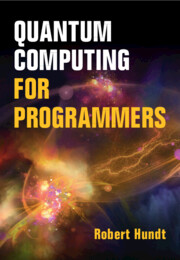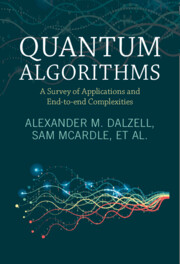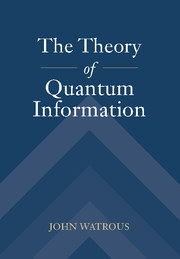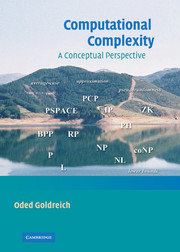Quantum Computing for Programmers
This introduction to quantum computing from a classical programmer's perspective is meant for students and practitioners alike. More than 50 quantum techniques and algorithms are explained with mathematical derivations and code for simulation, using an open-source code base in Python and C++. New material throughout this fully revised and expanded second edition includes new chapters on Quantum Machine Learning, State Preparation, and Similarity Tests. Coverage includes algorithms exploiting entanglement, black-box algorithms, the quantum Fourier transform, phase estimation, quantum walks, and foundational QML algorithms. Readers will find detailed, easy-to-follow derivations and implementations of Shor's algorithm, Grover's algorithm, SAT3, graph coloring, the Solovay-Kitaev algorithm, Moettoenen's algorithm, quantum mean, median, and minimum finding, Deutsch's algorithm, Bernstein-Vazirani, quantum teleportation and superdense coding, the CHSH game, and, from QML, the HHL algorithm, Euclidean distance, and PCA. The book also discusses productivity issues like quantum noise, error correction, quantum programming languages, compilers, and techniques for transpilation.
- Explains algorithms in basic, undergraduate-level math and in accessible code developed from the ground up, mostly in Python
- Develops transpilation techniques allowing circuits to be translated to other infrastructures, such as Qiskit or Cirg
- More than 120 circuit diagrams, plots, and illustrations aid understanding
Reviews & endorsements
Review of previous edition: 'There is a great deal of interest in quantum computing today. What many would like is a book that explains quantum computing to people who already know how to program conventional computers. This book successfully fills that need.' David Patterson, 2017 ACM A. M. Turing Award Laureate
Review of previous edition: 'There is a critical need for quantum software engineers in the emerging quantum computing industry. Robert Hundt is a classical software engineer who presents quantum computing as simply as possible to others with a similar background. This book could be the perfect vehicle for many interested in this emerging area.' Fred Chong, Seymour Goodman Professor, University of Chicago
Review of previous edition: 'Quantum mechanics, the century old theory underlying modern physics and chemistry, has a reputation for being incomprehensible. Professional physicists have a standard approach to this conundrum: 'Shut up and calculate!'. This book provides an alternative much better suited to the programmers of the XXI century interested in quantum computing: 'Shut up and program!'.' Sergio Boixo, Google
Review of previous edition: 'This book strikes just the right balance between theory and practice. Exploring quantum computing from the perspective of a classical programmer, using software and simulators to explain all concepts and algorithms, leads to an intuitive, accessible, yet deep learning experience. I highly recommend this book!' Kunle Olukotun, Cadence Design Professor, Stanford University
Review of previous edition: 'This book takes a unique approach of introducing quantum computing with a combination of precise but manageable mathematics, open-source code, and detailed derivations of many core quantum algorithms, which makes it an ideal learning resource for the community of software programmers, including both students and professionals, to explore the fascinating land of quantum computing.' Jason Cong, Volgenau Chair for Engineering Excellence, UCLA
Product details
November 2025Hardback
9781009548533
444 pages
244 × 170 mm
0.5kg
Not yet published - available from November 2025
Table of Contents
- Acknowledgments
- Introduction
- 1. The mathematical minimum
- 2. Quantum computing fundamentals
- 3. Simulation infrastructure
- 4. Quantum tools and techniques
- 5. Beyond classical
- 6. Algorithms exploiting entanglement
- 7. State similarity tests
- 8. Black-box algorithms
- 9. State preparation
- 10. Algorithms using amplitude amplification
- 11. Algorithms using quantum Fourier transformation
- 12. Quantum walk algorithms
- 13. Optimization algorithms
- 14. Quantum machine learning
- 15. Quantum error correction
- 16. Quantum languages, compilers, and tools
- Appendix: Sparse implementation.








